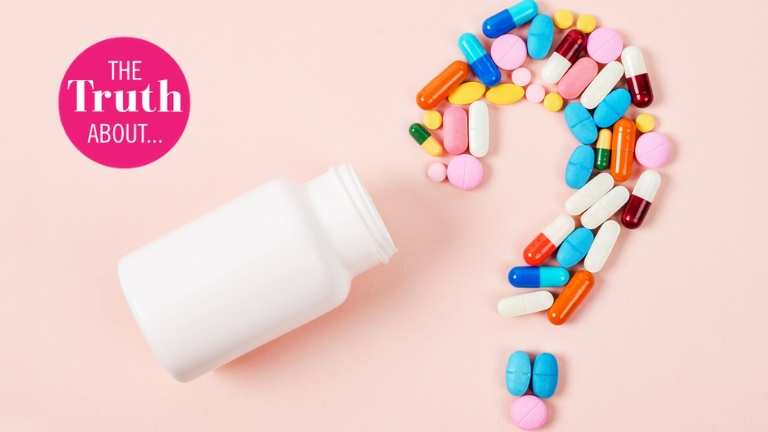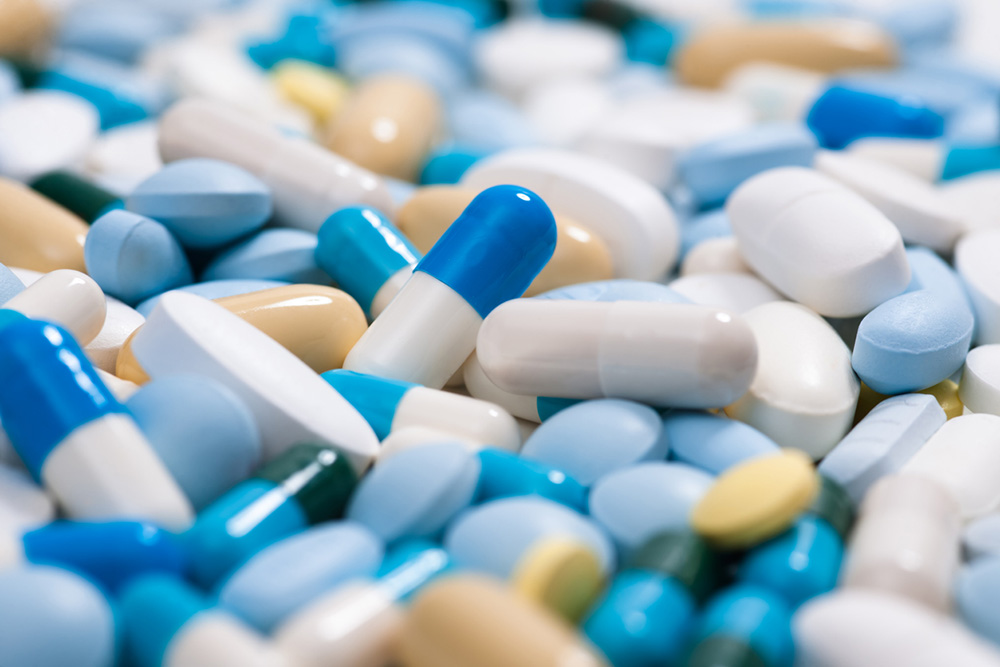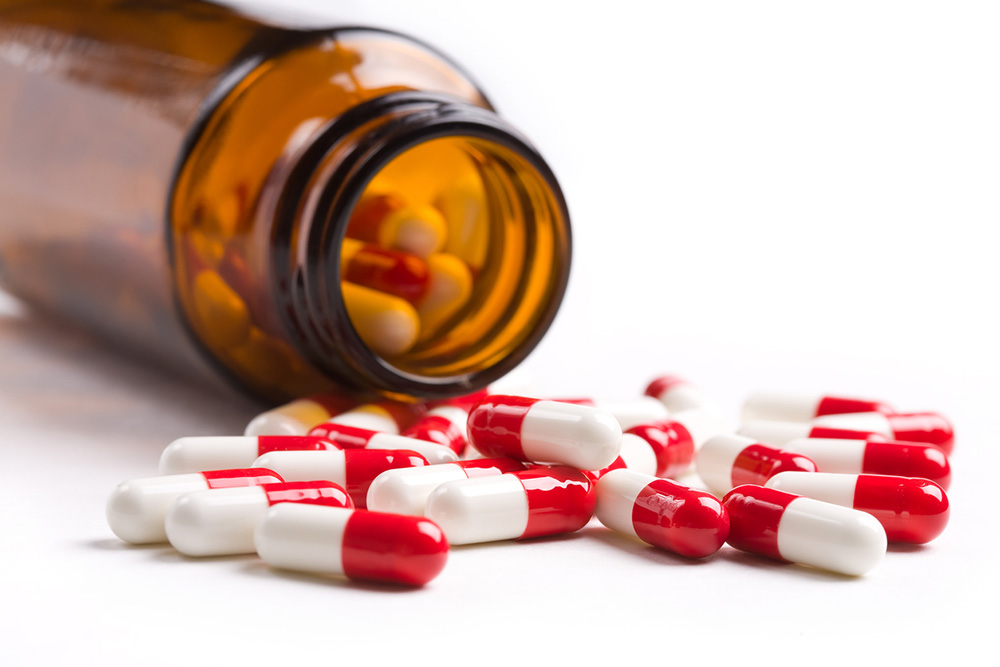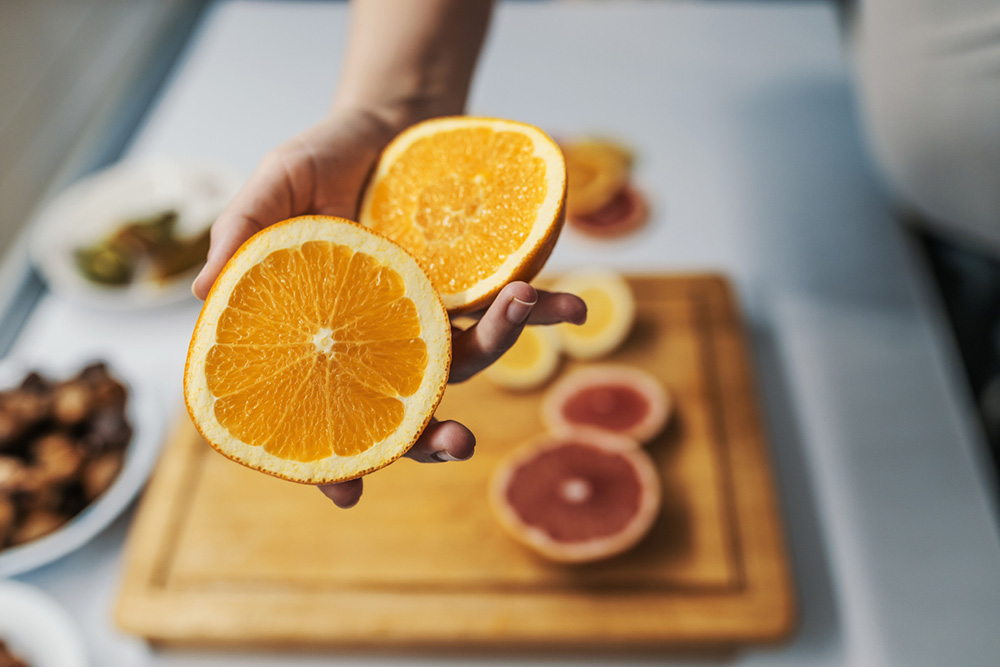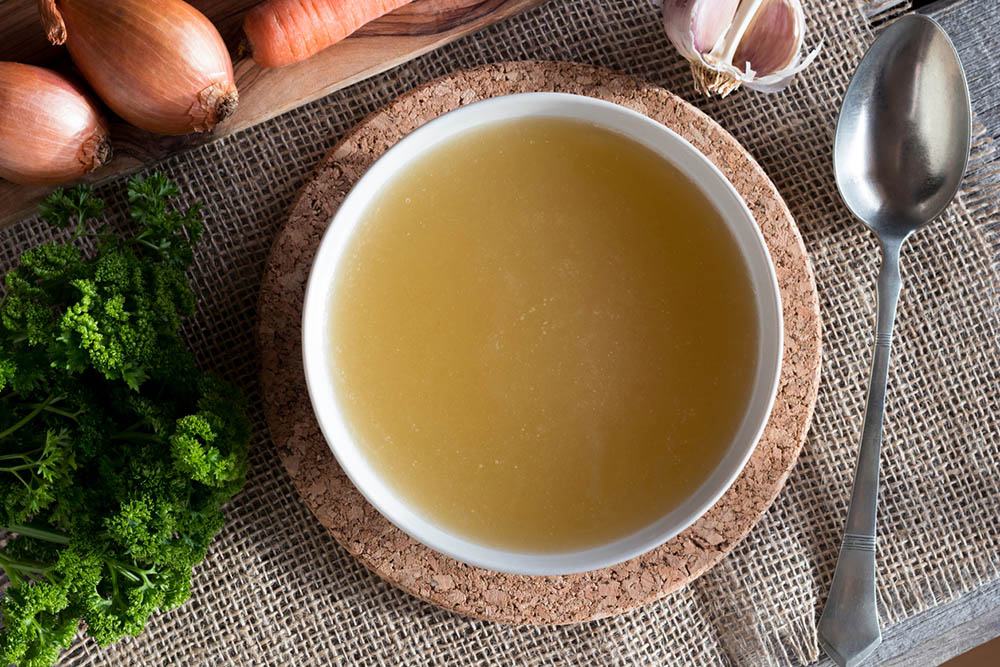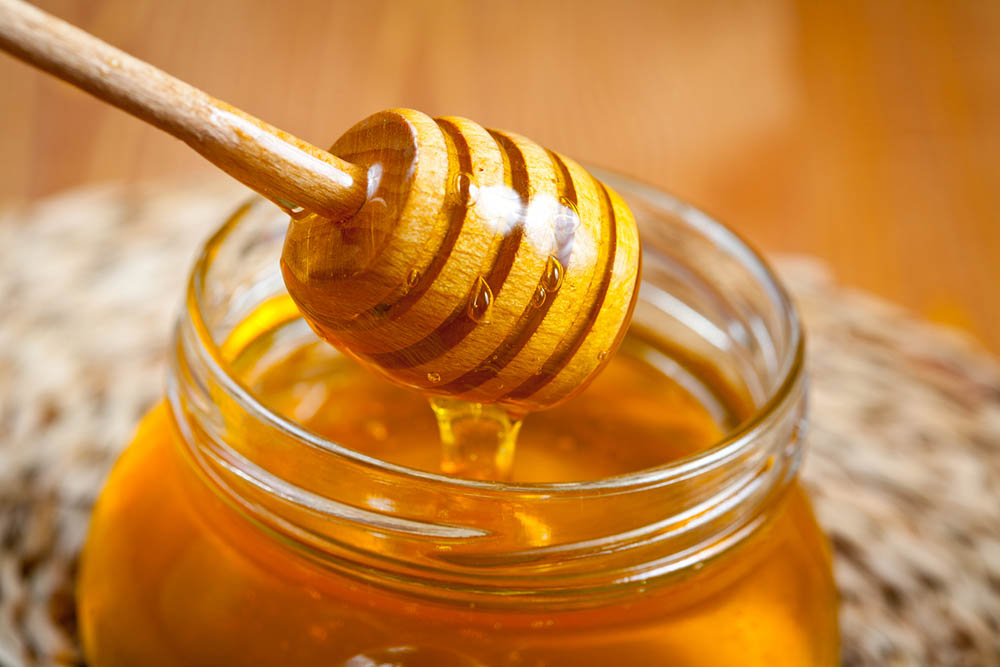81 per cent of antibiotics prescribed by dentists is unnecessary, says new research. Editor Anna Magee reports and finds proven ways to cure a cold fast without them
A single course of antibiotics could damage the delicate balance of bateria in your gut for a year or more, say scientists. Another good reason not to ask your doctor for antibiotics.
Plus, dentists too should think twice about prescribing antibiotics as they have been found to be unnecessary 81% of the time, according to a study published today in JAMA Network Open.
These findings are significant due to dentists being responsible for 10% of all antibiotic prescriptions written in the United States.
The overuse of antibiotics is leading to drug-resistant superbugs
Another new study by University College of London researchers has found that just one prescription of antibiotics can upend the delicate balance of the microbiome – the huge collection of microbes that inhabit our guts, which has been show to protect us against germs, help digestion, as well as aid the production of vitamins, hormones, and essential amino acids.
A reduced diversity of bacteria in the micobiome can lead to issues with gut health like IBS and a compromised immune stystem, say experts. And an unhealthy balance in bacteria, or reduced diversity, has been linked to a huge range of health issues from obesity to allergies like eczema and asthma
Damage to your microbiome isn’t the only reason to avoid unecessary antibiotics, experts are warning. The overuse of antibiotics is leading to drug-resistant superbugs, which are as big a threat as climate change. The health secretary will unveil a new five-year plan to tackle the problem.
The government aims to control and contain antimicrobial resistance (drug resistance in bacteria, viruses, parasites and other infections) by 2040, and to reduce the use of antibiotics in humans by 15% over the next five years. It also plans to cut antibiotic use in animals by 25% from 2016 levels by next year.
The world’s largest fast food chain McDonalds is one of the biggest buyers of beef. McDonalds released guidelines for suppliers of beef of its top ten sources to reduce the use of and phase out antibiotic use from their animals and cattle.
Over-prescription of antibiotics as well as our exposure to the drugs via widespread use in livestock have added to the concern of human antibiotic resistance. The World Health Organization (WHO) considers antibiotic resistance to be the highest-priority threat to human health.
90,000 people will die due to antibiotic resistance in Britain in the next 30 years
18.4 million pounds of antibiotics were sold to animal agriculture businesses in 2016. Nowadays antibiotics are used to treat illness in animals but also as a preventative measure too, however the World Health Organisation wants to put a stop to that.
McDonald’s is now cooperating, and the move to stop or reduce the use of antibiotics in beef could persuade other restaurant chains to follow in their footsteps.
You may think that superbugs only affect old people in hospitals, but if experts’ predictions about the soaring rise in antibiotic resistance are correct, everyday problems such as kidney infections could also become impossible to treat because antibiotics will no longer work to fight them.
In fact the Organisation for Economic Co-Operation and Development (OECD) has warned that over 90,000 people will die due to antibiotic resistance in Britain in the next 30 years, saying the over-prescription of antibiotics by doctors was to blame.
38% of people still expect antibiotics from their GP when they visit with a cough
So what is going on with antibiotic resistance, what does the term even mean and should we be worried?
Are you demanding antibiotics from your GP?
A few years ago I was home in Australia seeing my family and a few of them had caught cold. My cousin had caught it badly and needed to get back to work.
‘I’m just going to go to the doctor and get antibiotics,’ she said. ‘I explained that if she didn’t need antibiotics, which was probably the case, they wouldn’t make any difference.
The rest of the clan came down on me like a tonne of bricks. It made me realise there are still so many people out there demanding antibiotics when they don’t need them.
Indeed, a report released last month from the UK’s medical watchdog Public Health England (PHE) has found that 38 per cent of people still expect an antibiotic from their GPs when they visit with a cough, flu or a throat, ear, sinus or chest infection in 2017.
They have warned that this could mean the use of antibiotics in serious operations such as C-sections and the treatment of illnesses such as sepsis could, as a result stop working.
What the GP says
‘As GPs, we often, perhaps on a weekly basis, get asked for antibiotics for common colds and other viral illnesses and these are the people that definitely do not need them,’ says
Preethi Daniel, clinical director at private GP chain, London Doctors Clinic.
Antibiotics do nothing for viral illnesses, she explains, and are only helpful in treating bacterial infections.
‘The common cold, sniffles and sore throat are all caused by viruses and while your body is busy fighting this, technically your immune system is working hard and therefore may not be able to fight any opportunistic bacterial infection that may creep up,’ she says.
What do antibiotics actually do?
‘Antibiotics work to prevent or treat bacterial infections by killing or deactivating/weakening the bacteria,’ says Dr Daniel.
‘Globally, antibiotic use has increased,’ Dr Daniel asserts. ‘Just like viral infections, common bacterial infections can be dealt with by a robust immune system such as in the normal healthy population without the use of antibiotics’.
Typical questions Dr Daniel gets include, ‘If I take antibiotics at the first sign of a sore throat, won’t they help?’
‘Sore throats are nor precursors to colds,’ Dr Daniel asserts. So, if you’re trying to get antibiotics so the sore throat doesn’t ‘turn into’ a cold, forget it.
‘There is some evidence to state that regular Vitamin C can reduce the duration of symptoms of the common cold,’ says Dr Daniel (see below).
Other common queries include, ‘Won’t antibiotics make my terrible cold that won’t go away finally go away?’
‘If the cold is due to a virus, then no,’ says Dr Daniel. ‘If by chance it has morphed into a bacterial infection and you would know this because of changing symptoms where your phlegm is discoloured, or you might have a fever, then possibly, yes.’
What about those sinus infections that won’t go away? ‘Sinus infections can be a pain, literally,’ says Dr Daniel. ‘But they also tend to be viral most often and some steam inhalation, nasal douching, nasal sprays, paracetamol and ibuprofen are often all that is needed.
If the symptoms are prolonged or you are having fevers persistently and are just not managing, then speak to your GP who will determine if antibiotics might help.
So, would taking antibiotics prevent a full-on infection coming through?
‘They treat and may prevent some bacterial infections only – but if you are having an infection such as a common cold, and your body is working hard fighting this, sometimes bacteria take this as a golden opportunity to create havoc. In this case, you may need antibiotics’.
The rise of antibiotic resistance
Repeated antibiotic use for common infections has meant the common bugs that cause these infections have become used to them; in other words, they have become resistant.
‘Antibiotic resistance occurs when bacteria develop ways to stop antibiotics working’
‘This has meant that ‘superbugs’ have now emerged which are resistant to several groups of antibiotics limiting the doctor’s choice for treatment,’ explains Dr Daniel.
MRSA is one such example of a superbug, which poses a challenge and the fear now is that we will get superbugs that cannot be treated by any antibiotic currently available at all.
This is a major public health issue.
‘Antibiotic resistance occurs when bacteria develop ways to stop antibiotics working’, says Dr Susan Hopkins, deputy director, Healthcare Associated Infections (HCAI), at PHE.
When bacteria which is resistant to antibiotics causes an infection it becomes more difficult to treat, Dr Hopkins asserts.
‘Antimicrobial resistance is a broader term, encompassing resistance to drugs to treat infections caused by other microbes as well, such as parasites, for example malaria, viruses such as HIV and fungi, such as candida,’ she explains.
What are the current consequences of antibiotic resistance for everyday people?
Taking antibiotics encourages harmful bacteria that live inside you to become resistant.
‘This means that antibiotics may not work when you need them next time,’ says Dr Hopkins.
Public Health England’s 2018 ESPAUR report shows that antibiotic resistant bloodstream infections continue to increase year on year.
In 2017, 15% of bloodstream infections were estimated to be resistant.
There has been an estimated 35 per cent increase in antibiotic bloodstream infections from 2013 to 2017 (from 12,250 in 2013 to 16,504 in 2017).
So, what does this really mean for us? ‘When antibiotic resistant bacteria cause an infection it is more difficult to treat and common conditions like kidney infections and pneumonia have already become untreatable,’ says Dr Hopkins.
What could happen in the future?
‘Experts predict that in just over 30 years antibiotic resistance will kill more people worldwide than cancer and diabetes combined,’ says Dr Hopkins.
‘New data from PHE warns that without antibiotics more than three million surgical operations and cancer treatments a year may become life threatening’.
7 ways to fix a cold fast that are NOT antibiotics
A recent report from the National Institute of Clinical Excellence (NICE) advised that doctors should recommend honey and over-the-counter remedies as first-line treatment for coughs and colds, not antibiotics.
Generally speaking, acute coughs are the result of a cold, flu virus or bronchitis, and usually last around three weeks. So, what can we do that’s proven to work to make them go away quicker and help us feel better?
1. Take vitamin C
The government recommendations for vitamin C are 80 milligrams (mg) per day. ‘However, we often recommended higher dosages to have more of a therapeutic effect,’ says nutritional therapist Ellie Isom.
‘The safe upper limit levels for vitamin C based on research ranges from 1000mg and 2000mg per day,’ she recommends.
‘Vitamin C is a potent antioxidant that can improve the functioning of immune cells, helping with both prevention and fighting off infections,’ Isom asserts.
‘It can modulate the activity of some of our white blood cells as well as reducing blood histamine levels.’ Histamines are released by the body as part of your immune response. ‘Supplementation can decrease the duration of cold by 1-1.5 days’.
‘The best form of vitamin C to supplement with is magnesium ascorbate,’ suggests Isom. ‘This is vitamin C buffered with magnesium, which makes it less acidic, reducing stomach irritation and making it more tolerable’.
2. Try sage
Sage contributes to the natural defences of the body and can support the immune system. ‘Sage provides ursolic acid, which can inhibit viral replication and modulate the immune response by reducing the production of some inflammatory cytokines – compounds the body produces inj response to illness.
Ursolic acid can also inhibit the growth of bacteria, which may be helpful in ensuring they don’t take hold while your defences are down.
‘Sage can additionally have an antiseptic effect and is soothing for mouth, throat and vocal cords, further supporting its use for when you have a cold and sore throat.’ Try it in teas, pastels and herbal preparations.
3. Get that broth into you
Anti-microbial foods such as garlic, ginger and oregano can be supportive when recovering from a cold because they may help to keep the infection under control if it is bacterial but also aid with the microbial balance of our gut bacteria, helping to prevent the growth of unfavourable bacteria.
Good old fashioned chicken soup using broth made from an organic chicken carcass or beef bones can help here, Isom suggests.
‘Add a mixture of vegetables such as carrots, leeks, onions and herbs, cover with water and gently simmer for a few hours. Strain and drink the broth daily.
‘This provides an amazing dose of nutrients and is very soothing,’ says Isom. ‘Bone broth is also great dose of nucleoids, which can support the health of our gut wall which, in turn, strengthens our immune defences.
4. Not hungry? Drink your vegetables
‘If you have a low appetite, fresh vegetable juices can be a great source of nutrients and antioxidants,’ Isom suggests.
‘Our digestive functioning is one of the first body systems to be affected when we become stressed or unwell, so consuming easy to digest foods, such as soups, smoothies and juices, which have a high nutritional content, is often recommended.
Also, adding ingredients such as avocados and olive oil can be added to smoothies and juices as they are great sources of the fat soluble immune-supporting nutrients vitamins A and D.
Make sure you’re getting good quality proteins such as organic meat, eggs or bean and pulses, to support immune health by helping the body make white blood cells.
If you can stomach them, now is also the time to get more probiotic foods into your diet – our gut microflora is integral to our immune health, so supporting this is key.
‘Fermented foods such as sauerkraut, kimchi, miso, natural yoghurt, kefir and kombucha are great sources of live bacteria, which populate and thrive within the gut,’ says Isom.
5. Take an immune supplement
‘Regarding supplementation, for infections such as common cold or flu, use a synergistic combination of anti-viral and anti-bacterial nutraceuticals,’ Isom suggests. ‘Vitamin C, sage, vitamin D and zinc are of course very beneficial, but other nutrients can also play a part.
Elderberry contains phytochemicals which preventing viruses from entering cells where they would otherwise reproduce.
Beta glucans are a type of carbohydrate) present in foods such as mushrooms and oats, which support the innate and adaptive immune response, and are particularly supportive against upper respiratory tract infections and colds.
Elderberry contains phytochemicals which preventing viruses from entering cells where they would otherwise reproduce. Elderberry also strengthens our immune response against the influenza virus, increasing the speed of recovery.
N-Acetyl cysteine can help with mucus build up. It’s a source of the amino acid cysteine and is often recommended as it can help to break down mucus. ‘It can also support the body’s ability to make glutathione, an antioxidant which is especially important for lung health and can prove beneficial for those with recurrent chest infections,’ says Isom.
Biocare’s Immune Intensive sachets contain a potent combination of vitamins C, D and zinc, along with elderberry, sage and beta-glucans.
6. Try Pelagornium
This humble flower has been found repeatedly in research to shorten the duration of colds and to have an anti-viral, anti-microbial and ant-bacterial effect (it’s actually sold as a drug in Germany).
In studies, taking one pelargonium daily at the first sign of a sore throat or other symptom reduced the duration of the cold including symptoms such as cough frequency, nasal congestion and could even help reduce bronchitis symptoms. Try Kaloba Pelargnium Cough and Cold Relief tablets.
7. Honey may help
And of course, don’t forget the soothing action of a good old cup of warm lemon and honey. ‘This is a time when you need fluids and rest,’ says Healthista Nutritional Director Rick Hay. All honey contains hydrogen peroxide, which gives it its microbe-killing effects.
‘Honey has an antiseptic effect, so it may help prevent any opportunistic bacteria from taking hold during your cold,’ says Hay.
While most honeys will have some antibacterial effect, certain types called manuka honey, may have more of this activity. Grown in New Zealand, manuka honey’s effects have been researched against many different microbes.
Manuka honey’s antibacterial effect is down to a substance called methylglyoxal (MGO). The higher the MGO rating – look for the MGO number on the side of the jar – the higher the concentration of this anti-macterial compound. Look for a mark called UMF or Unique Maunka Factor, a grading system used by some manufacturers that appraises natural markers found in manuka honey such as antimicrobial activity, and assures purity and quality. Generally, the higher and more potent is also the more expensive.
This week is world Antibiotic Awareness Week, a campaign run by the World Health Organisation to increase global awareness of antibiotic resistance.
More Healthista Content:
Run like an athlete – the new London running club showing us how
Sanctuary secrets – 7 steps to make your home a feel good space
9 proven ways to prevent heart disease
14 ways to get REALLY good with money
53 supplements these top nutritionists take themselves
Like this article? Sign up to our newsletter to get more articles like this delivered straight to your inbox.



